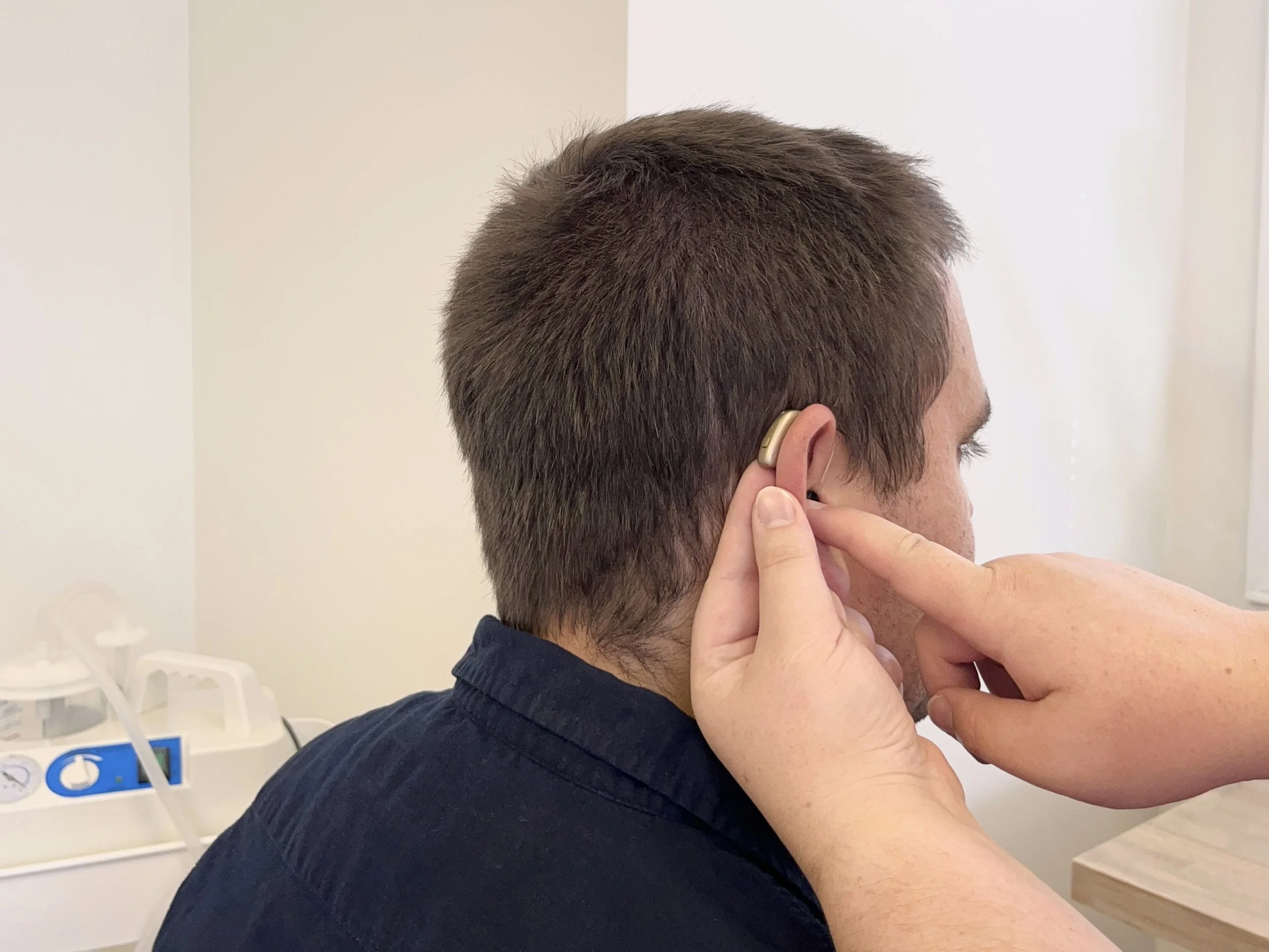Central Auditory Processing
Assessments in Muskoka
Do you or your child struggle to follow conversations, process spoken information, or focus in noisy environments? These could be signs of Auditory Processing Disorder (APD). We offer comprehensive auditory processing assessments in Huntsville, designed to evaluate how the brain interprets sound and identify any processing difficulties.
Our auditory processing testing in Muskoka helps both children and adults gain clarity on listening challenges and provides personalized recommendations for improved communication. Schedule an assessment to take the first step toward better auditory understanding.
What is Auditory Processing Disorder (APD)?
Auditory Processing Disorder (APD) affects the brain’s ability to process and make sense of sounds. People with APD may hear normally on a hearing test but still have trouble distinguishing speech from background noise, following directions, or remembering verbal information.
Common Signs of Central Auditory Processing (CAP) Issues
APD can affect people of all ages, but it’s often noticed in children and older adults. Signs may include:
Difficulty understanding speech in noisy environments
Frequently asking people to repeat themselves
Trouble following multi-step instructions
Mishearing or confusing similar words
Struggling with reading, spelling, or learning new words
Becoming easily distracted by background noise
If these challenges sound familiar, an auditory processing assessment can help uncover the root of the issue.
CAP Assessments at Birdsong Audiology
At Birdsong Audiology, we provide central auditory processing assessments to evaluate how your brain processes sound. Our assessments include:
Speech-in-noise testing – Measures how well you understand speech with background noise
Distorted speech tests – Assesses your ability to understand filtered words
Dichotic listening tests – Evaluates how your brain processes competing sounds in each ear
Temporal processing tests – Determines how well you recognize pitch, tone, and timing cues
Following your assessment, we provide a personalized recommendations.
Management for Auditory Processing Challenges
There are strategies can improve listening skills and make daily communication easier if you have APD.
1. Remote Microphone Systems for APD
One of the most effective solutions for APD is a remote microphone system (also known as an FM system). This device reduces background noise and delivers speech directly to the listener, making it easier to understand conversations in noisy settings. These systems are especially helpful for:
Students in classrooms
Adults in meetings or social gatherings
Anyone who struggles with speech clarity in noisy environments
2. Auditory Training Programs
Auditory training exercises can help strengthen the brain’s ability to process sound. These programs include:
Computer auditory training programs
At-home exercises
In-person auditory training




